12 start with B start with B

Baden, Kostolac, Vucedol and Vinkovci uses archaeology and genetics to create a novel cultural and historical interpretation of the Carpathian Basin during the Late Eneolithic period. The author traces the linear development of indigenous cultures from the Baden Culture through the Kostolac Culture to the Vucedol Culture, before positing that certain qualitative and quantitative shifts were driven by the entry of foreign populations—the Pit Grave Culture and the Bell Beaker Culture—into the Carpathian Basin.
The book also analyzes the emergence of the Early Bronze Age, establishing an absolute chronology, and examines the Vucedol Culture’s influence on geographically distant Bronze Age groups. An appendix also includes a discussion of findings that, while outside the Carpathian Basin, are part of its cultural sphere.
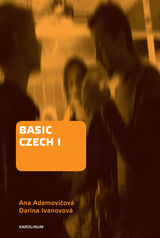
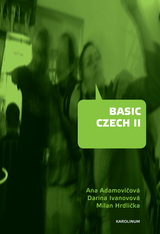
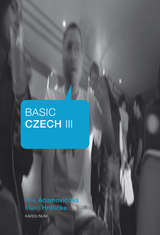
The grammatical and lexical topics covered in this volume exceed the level we commonly call basic. Nevertheless to preserve the formal continuity of all three volumes, we have kept the title "Basic Czech." Grammar and vocabulary covered corresponds with level B1-B2 of the Common European Framework of Reference for Languages.
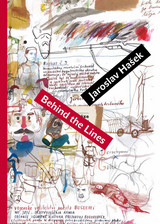
Jaroslav Hašek is a Czech writer most famous for his wickedly funny, widely read, yet incomplete novel The Good Soldier Schweik, a series of absurdist vignettes about a recalcitrant WWI soldier. Hašek—in spite of a life of buffoonery and debauchery—was remarkably prolific. He wrote hundreds of short stories that all display both his extraordinary gift for satire and his profound distrust of authority. Behind the Lines presents a series of nine short stories first published in the Prague Tribune and considered to be some of Hašek’s best. Based on his experiences as a Red Commissar in the Russian Civil War and his return to Czechoslovakia, Behind the Lines focuses on the Russian town of Bugulma, taking aim, with mordant wit, at the absurdities of a revolution.
Providing important background and insight into The Good Soldier Schweik, this collection by a writer some call the Bolshevik Mark Twain is nevertheless much more than a tool for understanding his better-known novel; it is a significant work in its own right. A hidden gem remarkable for its modern, ribald sense of humor, Behind the Lines is an enjoyable, fast-paced anthology of great literary and historical value.
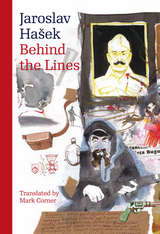
Jaroslav Hašek is a Czech writer most famous for his wickedly funny, widely read, yet incomplete novel The Good Soldier Schweik, a series of absurdist vignettes about a recalcitrant WWI soldier. Hašek—in spite of a life of buffoonery and debauchery—was remarkably prolific. He wrote hundreds of short stories that all display both his extraordinary gift for satire and his profound distrust of authority. Behind the Lines presents a series of nine short stories first published in the Prague Tribune and considered to be some of Hašek’s best. Based on his experiences as a Red Commissar in the Russian Civil War and his return to Czechoslovakia, Behind the Lines focuses on the Russian town of Bugulma, taking aim, with mordant wit, at the absurdities of a revolution.
Providing important background and insight into The Good Soldier Schweik, this collection by a writer some call the Bolshevik Mark Twain is nevertheless much more than a tool for understanding his better-known novel; it is a significant work in its own right. A hidden gem remarkable for its modern, ribald sense of humor, Behind the Lines is an enjoyable, fast-paced anthology of great literary and historical value.
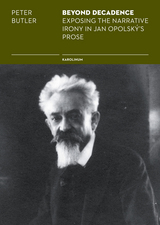

Bringing together Czech fiction published by women between 1890 and 1910, Beyond the World of Men presents works that confront pivotal issues of the time, including the “woman question” and women’s rights, class conflict, lesbian love, and the relationship between the aristocracy and the Czech peasantry (as in two stories originally written in German by the aristocrat Marie von Ebner-Eschenbach). The collection contains stories that are of literary merit, but also hold historical value. In these works, the authors offer trenchant social commentary while injecting both comic and sentimental elements into their writing, employing humanity and subtlety.
As a whole, the collection suggests a revision of the critical understanding of Czech literary modernism; these writers represent voices that were not usually heard in the male writing of the period. They also demand evaluation in their differing (but constant) reactions to earlier women’s writing in Czech and in other European languages, but particularly that of the central figure of Božena Nemcová, to whose canonic novel Babicka they constantly return.
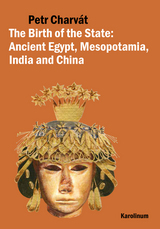
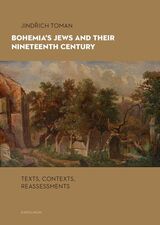
This book on Jewish culture and literature focuses on the “quiet” decades of the nineteenth century, a scarcely written-about period of time in Bohemian Jewish history. Using a myriad of sources, including travelers’ accounts, poems, essays, short stories, guides, and newspaper articles, the volume explores Jewish expression, Jewish-Czech relations, and the changing attitudes toward Jews between the 1820s and 1880s. It offers close readings of writers like Karel Havlíćek Borovský, Ján Kollár, Siegfried Kapper, and Jan Neruda, as well as lesser-known authors and sources. Combining skillful sustained analysis, judicious argumentation, and elegant writing, the book is a truly enriching reading experience.
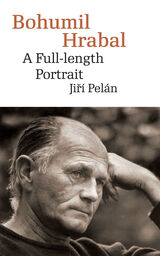
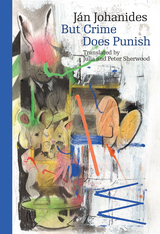
“So, as you see, I am familiar with the case. However, we can’t discuss it unless you learn more about some other court cases, so that you can compare your father’s trial with other, more baffling cases, and see it in the context of the madness that reigned at the time.”
Ján Johanides’ riveting Slovak novel immediately thrusts you into the midst of a bewildering second-person dialogue, bestowing the reader with the role of a silent partner in a one-sided conversation with a mysterious archivist. As the story unfurls piece by piece, it becomes clear that the archivist, who can’t seem to stay on topic, has both a tragic history and the key to unlocking your family’s darkest secret, a secret that may or may not involve the Czechoslovak secret police, American and Soviet intelligence, Israeli politics, and a tire full of dollars.
Set after the fall of the Soviet Union and the dissolution of Czechoslovakia, But Crimes Do Punish is awash with paranoia, revealing how the madness of the Communist era continues to bleed into the instability of the present. Written in 1995, this haunting novel—the first work of Slovak fiction published by Karolinum Press—evokes the spirit of John le Carré and the style of Carlos Fuentes while illuminating issues that still plague post-Communist Europe.
READERS
Browse our collection.
PUBLISHERS
See BiblioVault's publisher services.
STUDENT SERVICES
Files for college accessibility offices.
UChicago Accessibility Resources
home | accessibility | search | about | contact us
BiblioVault ® 2001 - 2024
The University of Chicago Press









